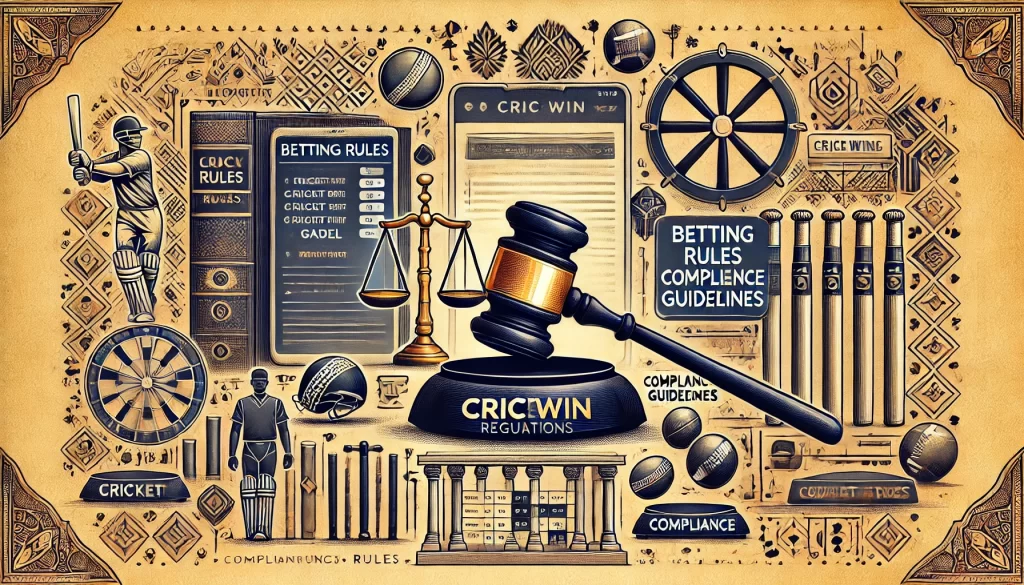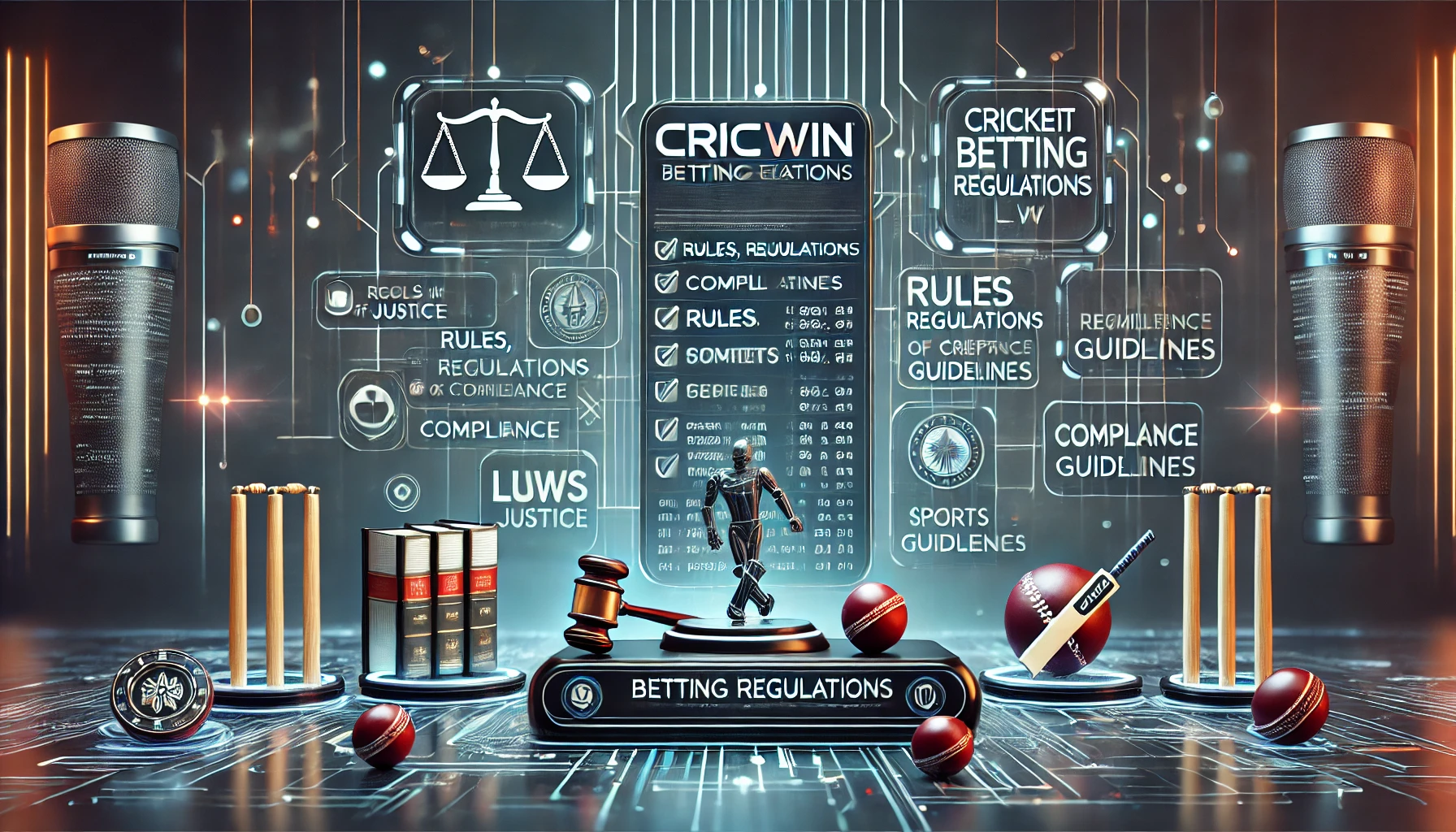Author: Shin Hari
Introduction
Online betting has surged in popularity in India over the past decade, and Cricwin is one of the most recognized platforms leading this wave. But with this rise comes a lot of questions around the legality of betting on Cricwin and how it complies with Indian regulations. As one of the largest markets for cricket and online sports betting, India’s legal framework around betting can be complex, and understanding it is key for any bettor.
Understanding Cricwin
The Legal Landscape of Betting in India

India’s gambling laws are a patchwork of central and state-specific regulations. Currently, the Public Gambling Act of 1867 serves as the cornerstone of betting laws in India. However, it primarily addresses physical betting houses, with little mention of online gambling, creating a legal grey area. There is a distinction made between “games of skill,” which are often considered legal, and “games of chance,” which fall under gambling prohibitions.
Cricwin’s Compliance with Indian Laws

Despite the ambiguity of Indian laws regarding online betting, Cricwin operates in a way that seeks to align with regulations. As the Indian government has not officially legalized or banned online sports betting, Cricwin takes measures to avoid operating out of jurisdictions where betting is explicitly banned. In states like Sikkim and Nagaland, where online betting is more clearly regulated, Cricwin ensures compliance with local laws.
Online Betting vs. Offline Betting

One of the reasons for the rise in popularity of platforms like Cricwin is the convenience they offer. Online betting allows users to place bets from the comfort of their homes, whereas offline betting often requires visiting a physical location. Furthermore, online platforms provide real-time updates, secure payment methods, and easier tracking of bets.
The Public Gambling Act of 1867
The Public Gambling Act, which dates back to 1867, prohibits operating or being in charge of a public gambling house. However, this legislation doesn’t clearly address online gambling, leaving many operators like Cricwin to work within this undefined territory. While some states have used the Act to ban online gambling, others have not enforced it against online betting platforms(1).
State-specific Laws and Betting

Cricwin Promoting Responsible Betting
Cricwin has implemented several features to promote responsible gambling, including options for users to set betting limits(2) take timeout breaks.
Taxation and Winnings on Cricwin
For Indian players, winnings from Cricwin are taxable under Indian law. The Income Tax Act mandates that any earnings from betting activities(3) are subject to a 30% tax, which is deducted at the source by most online platforms. Users must report their betting income when filing their taxes.
Technological Advancements and Security Measures
Cricwin uses advanced encryption technologies to ensure that user data is secure and that all transactions are processed safely. It also employs technology to detect and prevent fraudulent activities, ensuring that the platform remains safe for users to engage with.

The Rise of Mobile Betting
With the growing use of smartphones, mobile betting apps(4) have become increasingly popular. Cricwin offers a mobile app that replicates the features of its desktop site, providing a seamless betting experience on the go. Users can place bets, view live matches, and make withdrawals, all from their phones.
Pros and Cons of Betting on Cricwin
Like any platform, Cricwin has its pros and cons. On the plus side, it offers a wide variety of betting options, secure payment methods, and convenient features. However, risks such as addiction, financial loss, and legal uncertainties remain factors users must consider.
Social and Cultural Impact of Online Betting
International Comparisons: Betting Regulations in Other Countries

When compared to countries like the UK or Australia, where sports betting is legal and heavily regulated, India’s betting regulations are far more fragmented. In countries with clear frameworks, platforms like Cricwin operate under licenses and are subject to strict guidelines. India’s evolving laws may one day follow suit, creating more clarity for both operators and bettors.
Conclusion
Cricwin has carved out a significant space in the Indian online betting industry(5), but the legal uncertainties surrounding betting in India remain a concern for users. While it operates in compliance with various state laws, users must remain informed about the legal and financial implications of betting online. By following responsible gambling practices and staying aware of local regulations, bettors can enjoy the experience while minimizing risks.
FAQs
- Is Cricwin legal in India?
Cricwin operates in a legal grey area, as Indian law does not explicitly ban online betting. However, the platform complies with state-specific regulations where betting is restricted. - What are the betting limits on Cricwin?
Betting limits vary depending on the match and the type of bet. Cricwin allows users to set personal limits as well. - How does Cricwin ensure safe transactions?
Cricwin uses encryption and secure payment gateways like UPI, Paytm, and Netbanking to ensure the safety of user transactions. - Do I need to pay taxes on Cricwin winnings?
Yes, winnings from Cricwin are taxable at a rate of 30%, which users must declare when filing their taxes. - How can I gamble responsibly on Cricwin?
Cricwin offers responsible gambling tools like betting limits, timeout periods, and self-exclusion options to help users control their betting habits.
